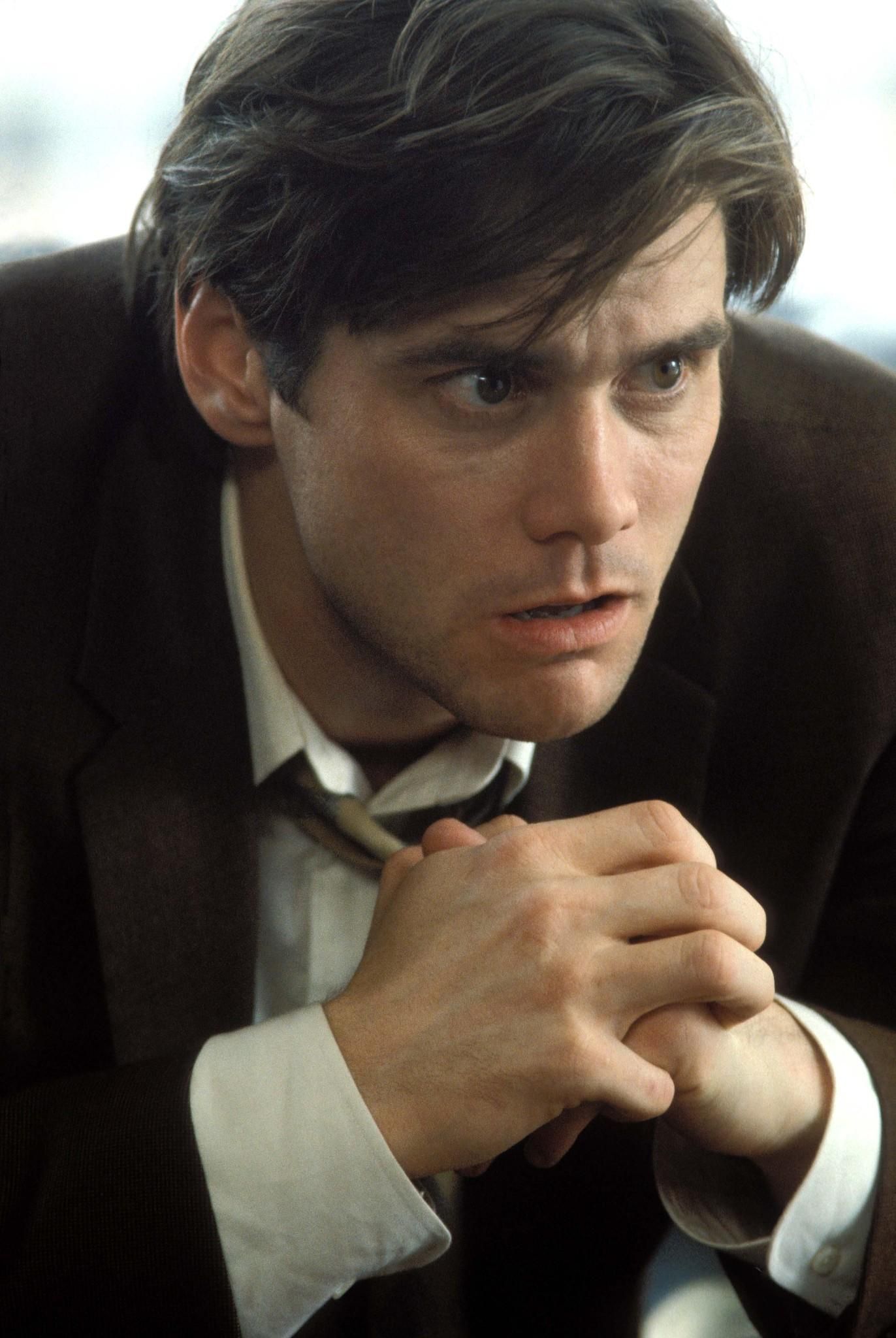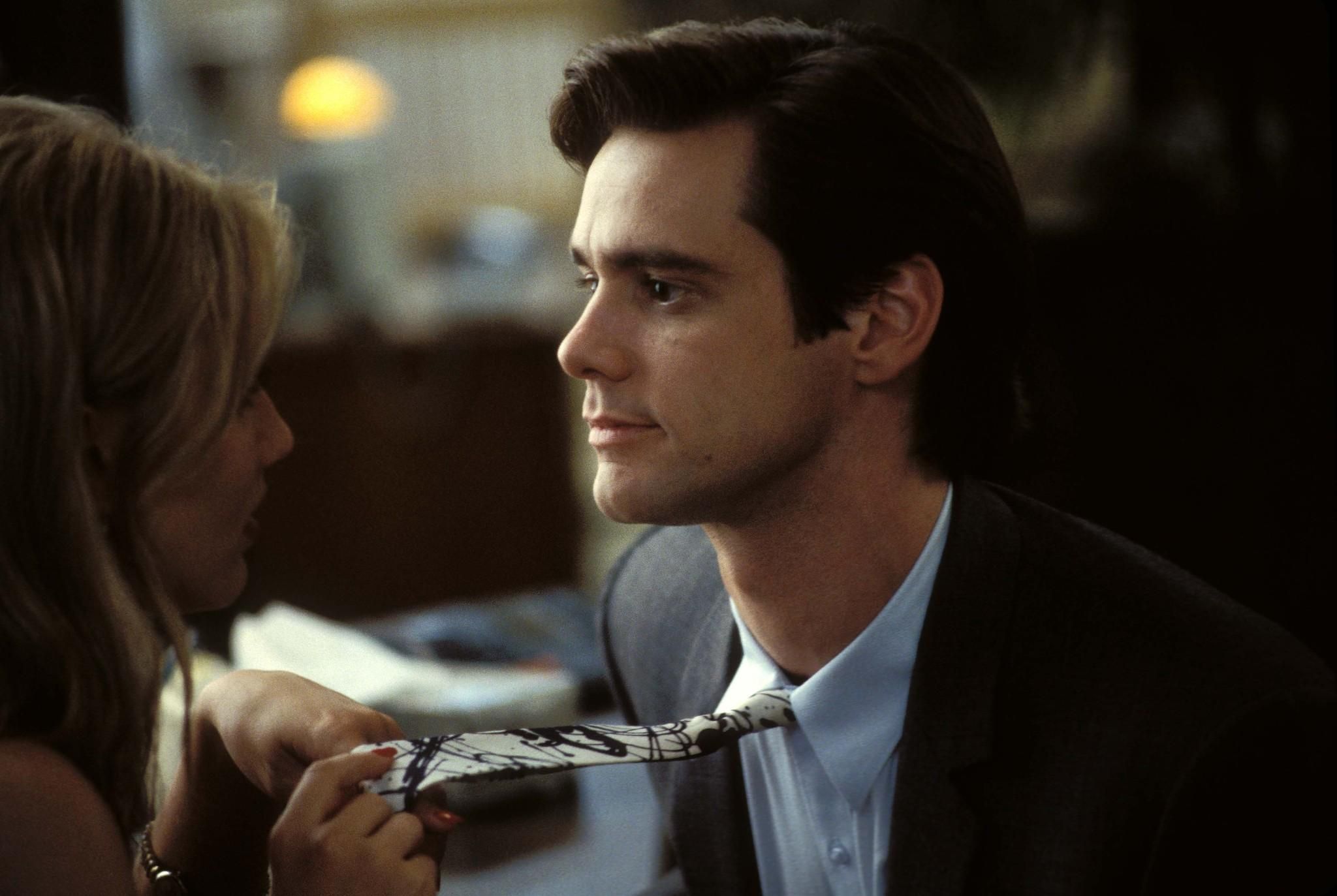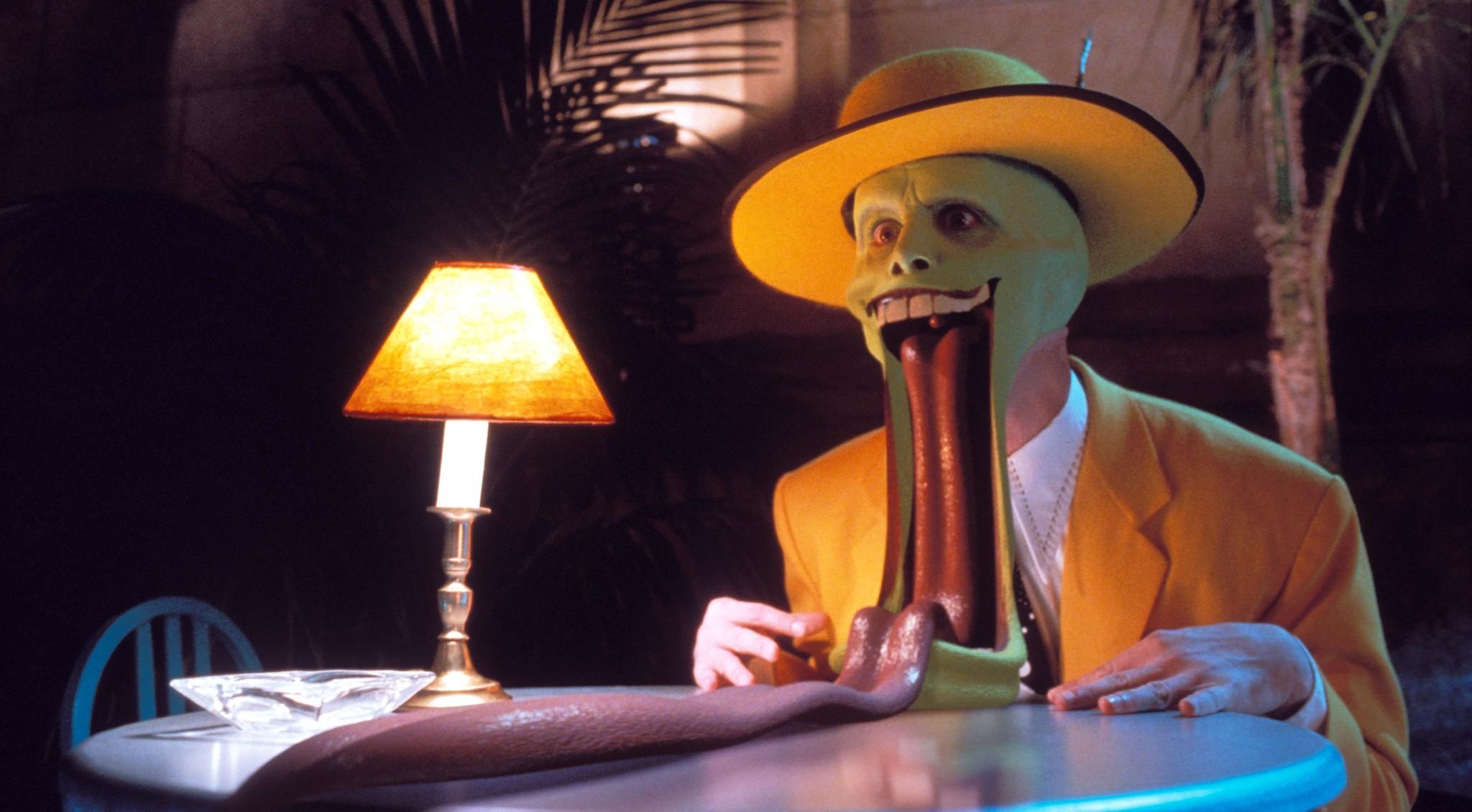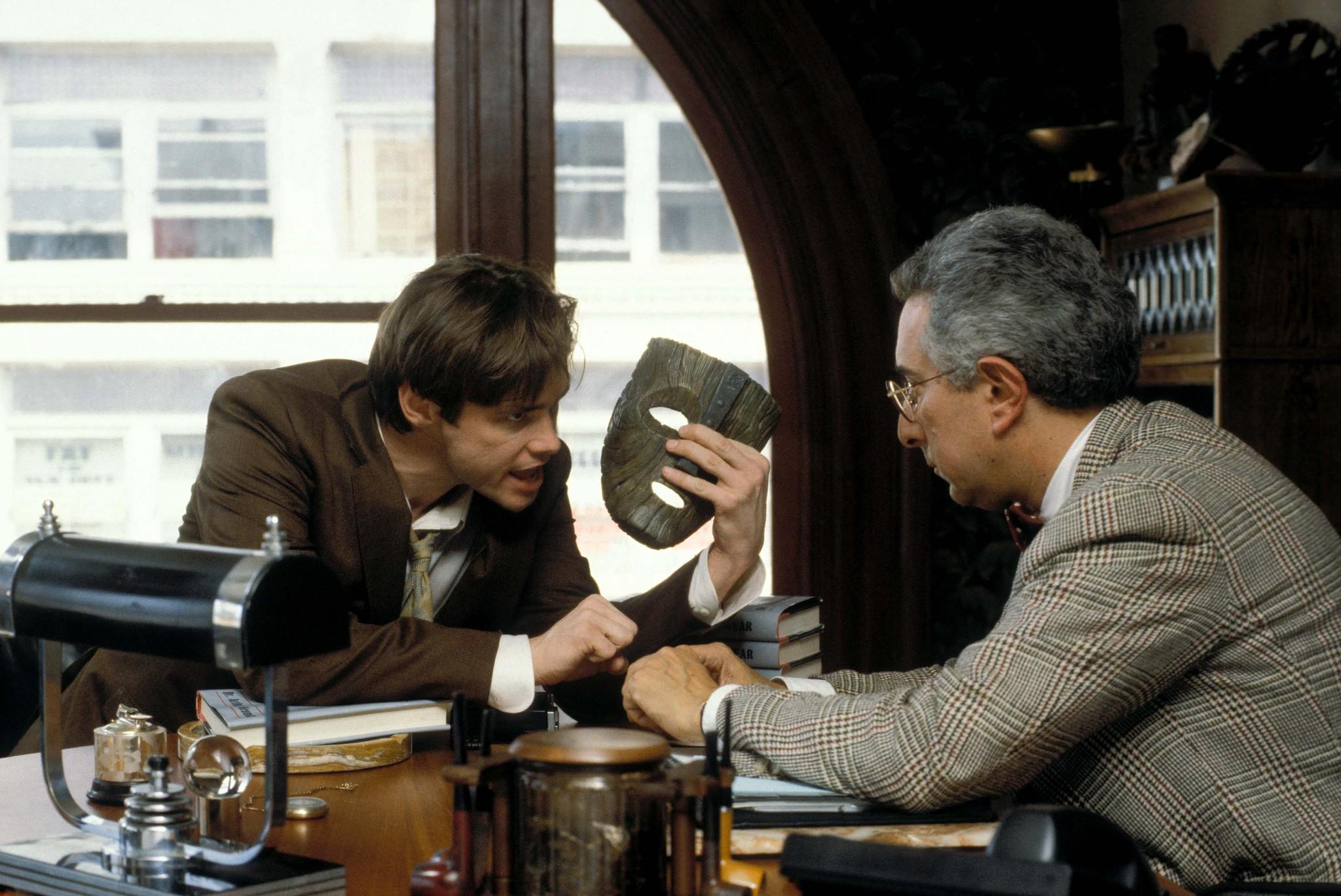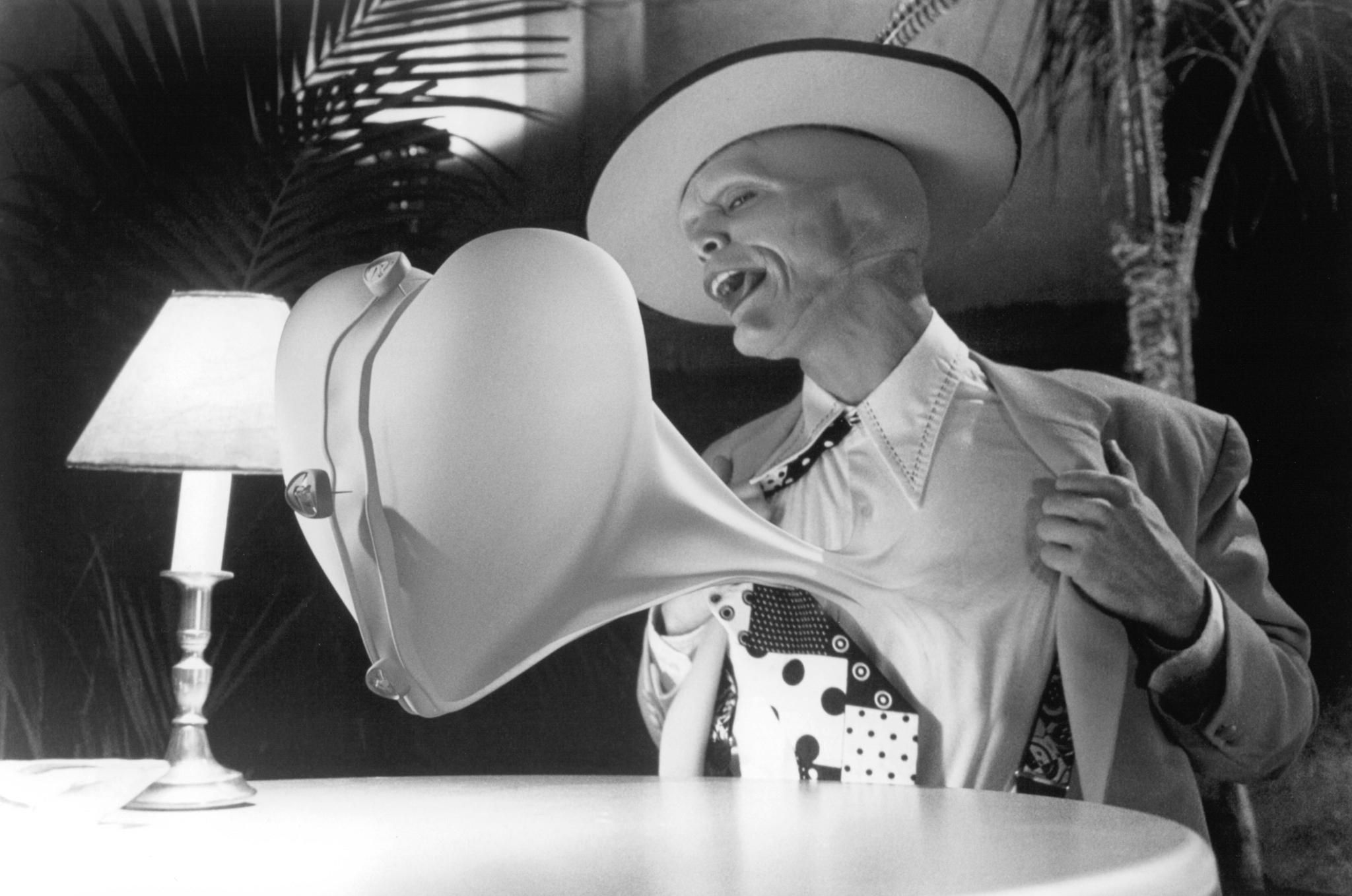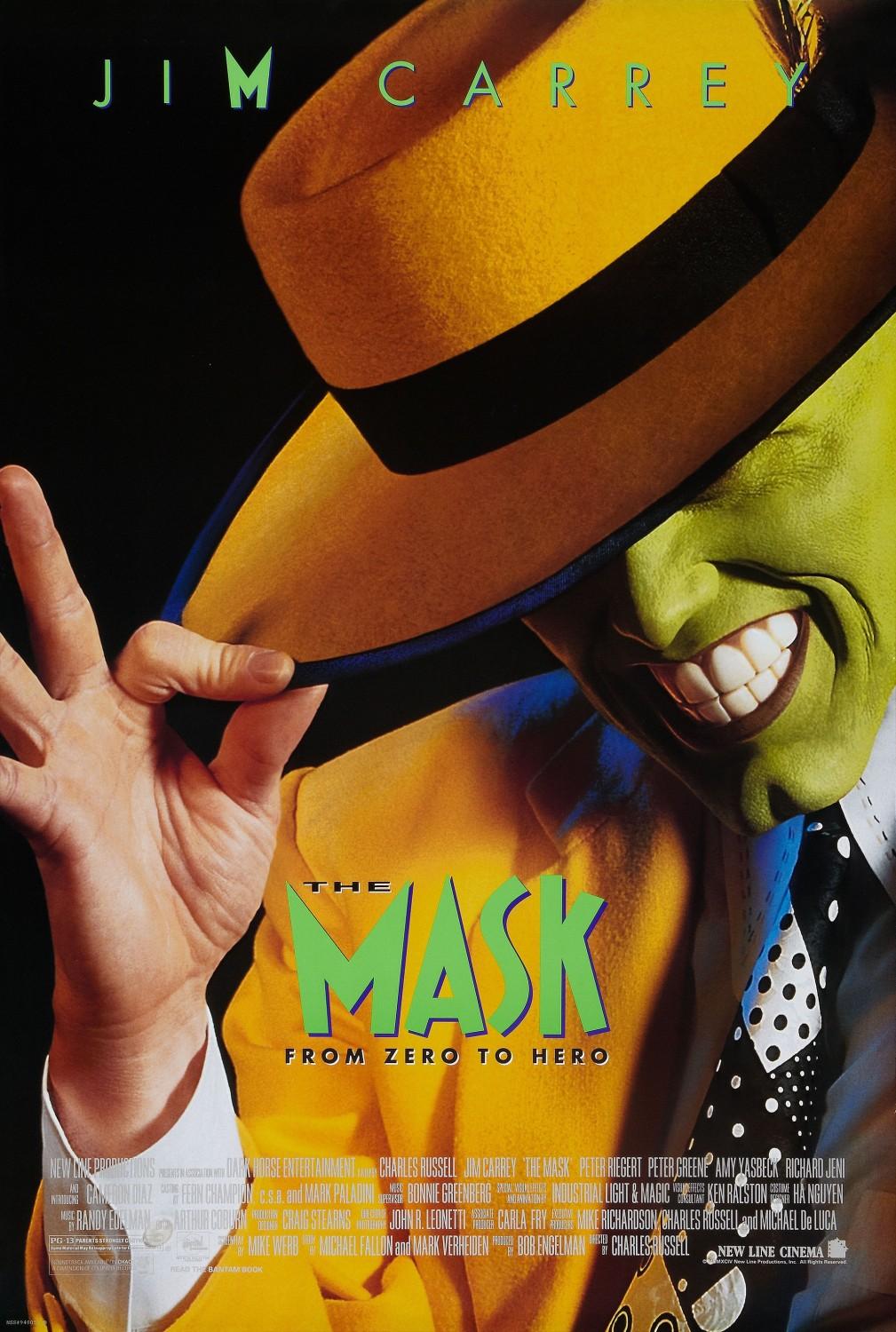Synopsis
In the bustling streets of Edge City, Stanley Ipkiss, portrayed by Jim Carrey, is a mild-mannered bank clerk whose life feels like a constant series of letdowns. Besieged by bullies, including his overbearing boss and unkind landlady, Stanley finds solace only in his loyal dog, Milo, and his amiable colleague, Charlie. Meanwhile, the dangerous gangster Dorian Tyrell, masterfully depicted by Peter Greene, orchestrates his nefarious dealings at the renowned Coco Bongo nightclub. As he plots to unseat his own boss, Dorian involves his stunning singer girlfriend, Tina Carlyle (Cameron Diaz), in a scheme to rob Stanley's bank.
When Stanley's path crosses with Tina's, an unexpected spark of attraction ignites. However, fate has more in store for Stanley when a chance discovery of an enigmatic wooden mask changes his life overnight. Mistaking it initially for something trivial, he decides to wear it on a whim, only to undergo a mind-boggling transformation into a vivacious, green-faced trickster known as "The Mask." With newfound confidence and a flair for the theatrical, Stanley unleashes his inner desires, turning the tables on those who tormented him while showcasing a reality-bending power.
Enter Lieutenant Kellaway, a weary detective played by Peter Riegert, and Peggy Brandt, an intrepid reporter played by Amy Yasbeck. Both are on the trail of The Mask's antics, adding a layer of tension to Stanley's adventures. The allure of the mask's power proves irresistible, leading to more mischievous escapades, including a heist that puts him at odds with Tyrell’s criminal network. The stakes climb higher when the enchanting Tina performs at Coco Bongo, and a series of captivating, dance-fueled antics ensue.
Amidst this whirlwind of chaos, Stanley learns from a mask expert that his mysterious guise might embody Loki, the Norse deity of mischief. Torn between his burgeoning confidence and the imminent danger posed by both Tyrell and the relentless pursuit by the authorities, Stanley grapples with his dual identity. As he gathers courage to confront his oppressors, he makes a daring attempt to connect with Tina, sharing moments of comedy and chaos.
When an unexpected betrayal alters the course of events, Stanley finds himself pitted against the fearsome Tyrell, who has now unleashed the mask’s dark potential. As tensions reach their peak at Coco Bongo, transforming from vibrant nightclub to battleground, it's a race against time to thwart Tyrell's vile plans. With his trusty canine companion Milo, Stanley embarks on a mission to retrieve the mask, ultimately rising to the occasion and embracing his inner hero.
Amidst the antics and action of Edge City's elite gathering, Stanley's final showdown entwines humor and heart. A daring and unpredictable sequence unfurls, culminating in a breathtaking and redemptive moment. As the sun rises, Stanley decides the mask’s fate, casting it back into the sea alongside Tina, ready to embrace a future unbound by illusions. As escapades and identity play unfold into a poignant climax, audiences are left with a tale as intriguing and multifaceted as The Mask itself.
Argument
The film presents a fascinating exploration of identity, empowerment, and escapism through the transformation of its protagonist, Stanley Ipkiss. Stanley, skillfully portrayed by Jim Carrey, is an unassuming bank clerk in chaotic Edge City who is habitually dominated by his oppressive surroundings and the bullying figures in his life, notably his overbearing boss and merciless landlady. This social hierarchy renders Stanley a luckless dreamer, whose sole comfort lies in the companionship of his loyal Fox Terrier, Milo, and his sympathetic colleague, Charlie. The introduction of Dorian Tyrell, a ruthless gangster and manager of the exclusive Coco Bongo nightclub, sets the stage for a power struggle that transcends mere physicality, as ambition drives him to plot against his superior, Niko. This backdrop of crime and deception unveils Tyrell's plan to manipulate his girlfriend, Tina Carlyle, into surveilling Stanley’s bank for an imminent robbery. At this juncture, Stanley’s naive infatuation with Tina ignites a complex interplay of innocence versus deception.
Stanley's encounter with the mystical mask propels him into a world of surreal possibilities. The seemingly innocuous artifact, mistaken for debris, masks a deep lore connected to the Norse god Loki, representing chaos and transformation. Upon donning the mask, Stanley undergoes a metamorphosis into , a chaotically dressed, emerald-headed character exuding flamboyance and anarchy. This alter ego embraces a reality-bending freedom that liberates Stanley from his inhibitions, enabling him to exact a humorous yet poignant retaliation against his oppressors. This vivid transformation challenges the audience to question the boundaries of identity and power, juxtaposing Stanley’s mundane reality with his absurdly potent masked persona.
The ensuing chaos attracts the scrutiny of the world-weary Lieutenant Kellaway and ambitious journalist Peggy Brandt, who seek to uncover the enigma of The Mask. Despite this, Stanley is irresistibly drawn back to the mask's allure, leading him to interrupt Tyrell's heist in a brazen act that inadvertently implicates Tyrell in criminal activity. This act stakes Stanley at the center of a whirlwind of mayhem, evoking tension as he dances extravagantly with Tina at the Coco Bongo, much to the dismay of his adversaries.
A near-fateful confrontation with Tyrell marks a turning point, unraveling when Tyrell holds Stanley accountable for Freeze’s demise. The resultant clash, characterized by shots and escapes, leaves Stanley grappling with a gun-toting underworld that hastens his inevitable unmasking. The film deftly illustrates the dichotomy between Stanley's newfound confidence and the peril it invites from both law enforcement and the mob.
As the narrative progresses, Stanley seeks counsel from Arthur Neumann, a connoisseur in masks, whose insights reveal the mask's mythological origins, yet this revelation scarcely quells the looming threats. His ascent in self-assuredness emboldens him to oppose his tyrannical superior and arrange a clandestine rendezvous with Tina. This alludes to Stanley’s evolving confidence, yet his advances misfire, leading to an altercation with Lt. Kellaway. The encounter culminates in a frenetic scene where The Mask orchestrates a whimsical Cuban Pete number, a satirical juxtaposition of chaos and control that epitomizes the film’s thematic essence.
In a soul-crushing twist, Peggy’s betrayal delivers him into Tyrell's clutches, a maneuver underscoring the self-serving motivations that underpin human behavior. When Tyrell dons the mask, he incarnates an unhinged force of malevolence, intensifying the stakes as he seeks Stanley’s hidden stash of money, manifesting a cautionary tale of power corrupted by darkness.
Stanley’s plight worsens as he is thrust into incarceration, only to find solace in the unwavering fidelity of Milo. Meanwhile, Tina’s empathetic visit to Stanley’s cell spurs her on a perilous escape, momentarily thwarted by Tyrell’s ominous retribution. This nails the point home that courage and humanity persist amidst overarching danger.
The climax unfolds amidst the glitz of Coco Bongo, clouded by gunfire and mayhem as Tyrell’s machinations culminate in a showdown, intent on obliteration. Stanley’s dramatic jailbreak, facilitated by Milo and accompanied by an unwilling Lt. Kellaway, challenges traditional roles by highlighting unexpected alliances in crisis. The film crescendos as Tina cleverly disarms Tyrell, facilitating Stanley’s reclaiming of the mask, serving as a testament to wit triumphing over brute force. The spectacle of Stanley utilizing the mask’s might to subdue Tyrell and neutralize a bomb with comedic flair epitomizes the dichotomy between menace and benevolence inherent in his duality.
As officials apprehend Tyrell’s remaining cronies, Mayor Mitchell Tilton’s exoneration of Stanley emotionally reconciling his masked endeavors with righteous action, reinforces a narrative of misunderstood heroism. The denouement carries Stanley and Tina back to the harbor, returning the mask to the depths from whence it originated, symbolizing a return to equilibrium. The closing sequence, with Milo ingeniously retrieving the mask, suggests an open-ended continuum of chaos and heroism, inviting audiences to ponder the complexities of identity and empowerment.
The Mask surges past its comedic veneer to delve into the exploration of self, bolstered by Jim Carrey’s vivacious portrayal and an incisive narrative that intertwines humor with profound insights into the human psyche. This film posits a pertinent argument on the very nature of identity—liberated or repressed—prompting reflection on the liberating power of embracing one's authentic self amidst societal constraints.
Cast

Jim Carrey
Stanley Ipkiss

Cameron Diaz
Tina Carlyle

Peter Riegert
Lt. Mitch Kellaway
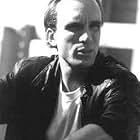
Peter Greene
Dorian

Amy Yasbeck
Peggy Brandt

Richard Jeni
Charlie Schumaker

Orestes Matacena
Niko

Tim Bagley
Irv

Nancy Fish
Mrs. Peenman

Johnny Williams
Burt

Reg E. Cathey
Freeze

Jim Doughan
Doyle

Denis Forest
Sweet Eddy

Joseph Alfieri
Police Officer

B.J. Barie
Alley Punk #1

Catherine Berge
Cigarette Girl

Phil Boardman
Guard

Krista Buonauro
Lady Cop
Multimedia
